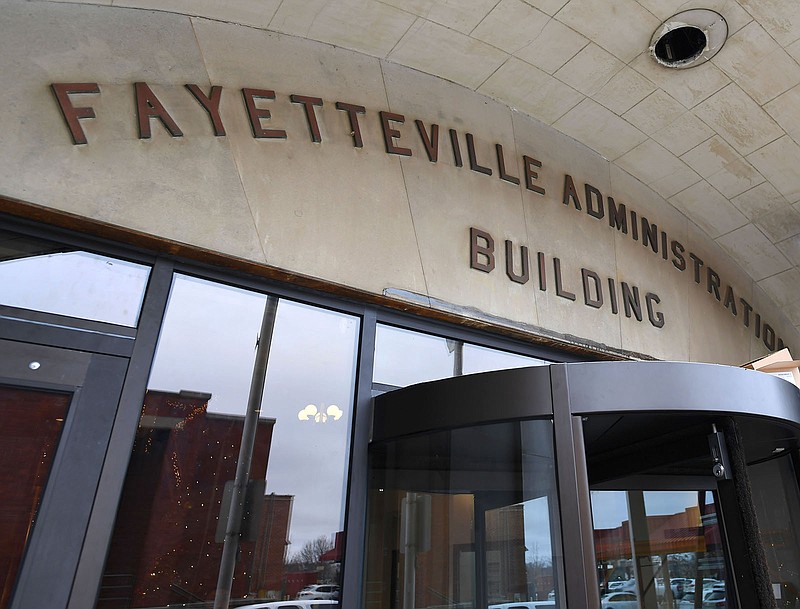FAYETTEVILLE -- City leaders and community advocates will work together over the next three months to come up with a plan to preserve structures and land significant to Black history after a City Council vote Tuesday.
The council voted 8-0 to hold for three months a proposal sponsored by council members Sonia Harvey and D'Andre Jones to purchase real estate east of downtown in collaboration with the Northwest Arkansas Black Heritage Association.
The area in question is roughly bordered by Lafayette Street to the north, Fletcher Avenue to the east, Martin Luther King Jr. Boulevard to the south and College Avenue to the west. Sharon Killian, board president of NWA Black Heritage, introduced the proposal that Harvey and Jones sponsored.
The text of the resolution would authorize the mayor "to purchase real estate to be returned to the NWA Black Heritage Association for restoration, redevelopment and advancement to the African American community into the vibrant and thriving district it is meant to be."
Killian provided an extensive history of the area to council. An aerial map showed more than 270 Black families owned property throughout the area in the early 1900s, along with the locations of historic schools that no longer exist. Henderson School on Olive Avenue serving Black children from 1868-1939 was the first public school in the state. Lincoln School farther south served Black children from 1939-1965, and Jefferson School on Martin Luther King Jr. Boulevard was an integrated school in 1965 until it closed in 2006.
The area was named "Tin Cup" by white residents and its name no longer appears on any city maps, Killian said. The city's 1945 master plan explicitly outlined ways to segregate Black residents, with plans for a highway to run through it that never came to fruition as residents fought against disenfranchisement, she said.
Only remnants of the community remain, Killian said. Descendants of some of those early Black families still live in the city, although their numbers are dwindling as redevelopment has occurred over the years, she said.
Killian referred to what has happened as erasure, which many of the city's current planning policies still propagate, she said.
"I really approached you all to try to help us to stop the bleeding," Killian said. "I will just say putting up a bunch of signs everywhere is not it. It really isn't it.
"The buildings we're talking about -- we're not talking about getting a building and leaving it as it is to say, 'this is the history of our ramshackle existence here,'" Killian said. "We want to stop the bleeding so there is land there and buildings there so that, when we build a district, there's something to build with. That's the urgency of this."
Speakers held back tears several times during the meeting. Harvey, when introducing the proposal to the council, asked her fellow members to imagine what it felt like to be a Black resident living in the city in a part of town white residents referred to as "n***** holler." Seven members of the public spoke in favor of the proposal, saying it presented an opportunity for the city to right historic wrongs.
City Attorney Kit Williams advised the council the proposal as written was unconstitutional. He said he viewed the proposal as the city buying properties and giving them to a private group, which would legally be the same as giving taxpayer dollars directly to a private group, which is illegal, he said.
However, Williams said that should not be the end of the story. He said he had ideas on what the city could do to accomplish some of the goals outlined in the proposal.
Jones asked if city staff could get with Killian and members of the city's Black Heritage Preservation Commission to come up with a legally sound proposal in three months. He also asked for members to tour the area at some point to hear from impacted residents.
Council action
Fayettevilles City Council met Tuesday and approved:
Using up to $200,000 to hire a consultant to come up with a citywide arts and culture plan.
Making changes to the citys false security alarms ordinance, including reducing the fees property and business owners pay for having too many false alarms within a calendar year.
A planned zoning district for nearly 4.5 acres southeast of Martin Luther King Jr. Boulevard and Smokehouse Trail.
Source: Fayetteville
